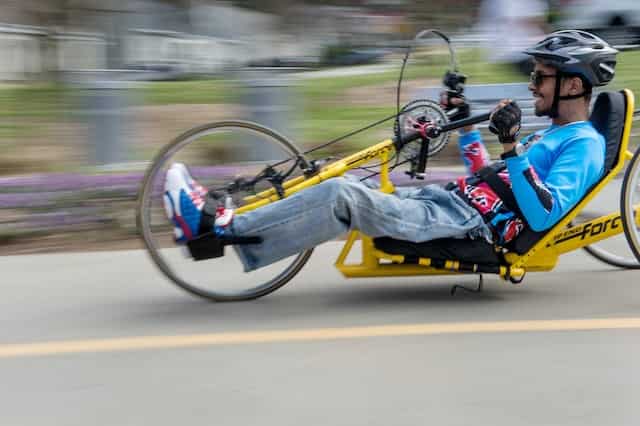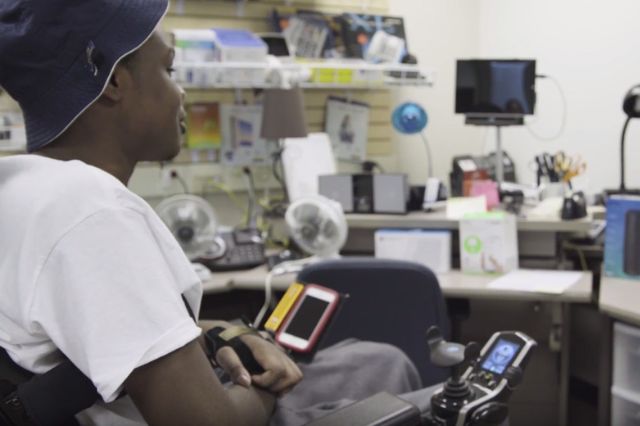Shepherd Center's Neuropsychology Training Program
Neuropsychology Education Goals and Program Structure
This two-year neuropsychology training fellowship is consistent with Houston Conference Guidelines, with a balance of assessment, intervention, and consultation, reflecting prototypic contemporary neuropsychological practice in inpatient and outpatient settings. The fellow will be trained and evaluated in the competencies delineated by Smith (2019), which details the education and training in clinical neuropsychology. Fellows will also have ample opportunity to work alongside other allied health and rehabilitation specialists.
Additional neuropsychology training goals of the fellowship include:
- Advanced skill in neuropsychological evaluation, treatment, and consultation with patients and professionals sufficient to practice on an independent basis.
- Advanced understanding of brain-behavior relationships.
- Sufficient scholarly activity through submission of a study or literature review for publication, presentation, submission of a grant proposal, or outcome assessment.
- Eligibility for state licensure in the state/province in which the fellow intends to practice.
- Eligibility for board certification in clinical neuropsychology by the American Board of Professional Psychology.
Required Primary Rotations
Fellows complete two, 12-month major rotations as part of the fellowship. One rotation focuses on the neurorehabilitation of individuals with a neurologic disorder in the inpatient setting. Concurrent with the major rotation, a minor rotation is completed in which the fellow also maintains a small testing caseload in the Outpatient Clinic one day per week.
The other rotation focuses on acute neurologic disorders, as well as individuals presenting with chronic sequelae of neurologic disorders, in a post-acute setting. One fellow will be placed in each major rotation for the first year. The fellows will switch major rotations for the second year. A sample rotation structure can be viewed here.
Rotation A
Neuropsychology fellows are embedded members of the team and work with patients, families, and staff regarding cognitive, behavioral, and emotional issues. Learn more about our brain injury inpatient rehabilitation program.
Population: Inpatient neurorehabilitation of persons with traumatic brain injury, stroke, anoxic brain injury, tumors, cerebral infection, and other acquired neurologic disorders. Primarily adult populations but serve adolescents as well.
Assessment: Neurobehavioral status exams; capacity evaluations; neuropsychological evaluations (i.e., test selection, administration, scoring and interpretation, report writing, and provision of feedback).
Intervention: Neurobehavioral treatment plans; individual, group, and family therapy; family and patient educational programs.
Interdisciplinary Systems: Embedded within the interdisciplinary neurorehabilitation team, which is comprised of a treating physician, case manager, speech therapist, physical therapist, occupational therapist, nursing, and other disciplines.
This rotation includes specialized experience with Shepherd Center’s Disorders of Consciousness program, including assessing and tracking patients’ level of consciousness using evidence-based assessments and providing education to the family.
Primary Supervisors: Alex Alverson, Ph.D., ABPP-CN; Chelsea Day, Psy.D.; Michelle Jackson, Ph.D., ABPP-CN; Vanessa Watorek, Psy.D.
The neuropsychology fellow will complete neuropsychological evaluations for a wide range of referral questions. Learn more about our neuropsychology outpatient rehabilitation program.
Population: Internal and external referrals related to Alzheimer's disease and other neurodegenerative conditions, brain tumors, multiple sclerosis, epilepsy, stroke, and traumatic brain injury. May include dual diagnosis (SCI/TBI). Primarily adults, some adolescents.
Assessment: Neuropsychological evaluations (i.e., interview, test selection, administration, scoring and interpretation, report writing, and provision of feedback).
Intervention: Therapeutic interviews and feedback.
Interdisciplinary Systems: Provide feedback to internal and external referring providers. As appropriate, communicate with rehabilitation teams, referring providers, and/or Worker’s Compensation case managers.
Primary Supervisors: Susan Shwartz, Ph.D., ABPP-CN
Rotation B
The neuropsychology fellow will work with patients, families, and staff as a member of the interdisciplinary team to provide assessment and intervention services at Shepherd Center’s post-acute program. Fellows develop a comprehensive understanding of the long-term sequelae of cognitive and emotional function following ABI on this rotation.
Population: Post-acute neurorehabilitation of persons with traumatic brain injury, stroke, anoxic brain injury, tumors, cerebral infection, and other acquired neurologic disorders. Primarily adult populations but serve adolescents as well.
Assessment: The emphasis of post-acute neuropsychological assessments is aimed toward characterizing residual cognitive strengths and weaknesses, assessing capacity to return to work and/or school, decision-making abilities/capacity, medico-legal issues, and readiness to drive.
Intervention: Individual, family, and group psychotherapy, provision of psychoeducation related to ABI and substance use, as well as design, execution, and monitoring of neurobehavioral plans.
Interdisciplinary Systems: The fellow serves as a consultant to various interdisciplinary neurorehabilitation teams, which are comprised of a treating physician, case manager, speech therapist, physical therapist, occupational therapist, nursing, and other disciplines.
Primary Supervisors: Gary James, Psy.D., Kristian Nitsch, Ph.D.
Minor Rotations (Select One or More)
Each fellow in satisfactory standing is expected to complete either two minor rotations (the equivalent of one day per week for a three-month duration at the rotation site) or one major rotation (the equivalent of one day per week for a six-month duration at the rotation site) during the last six months of the second year of their neuropsychology education with Shepherd Center.
Additional opportunities for minor rotations may be available or developed based on individualized interest. Some minor rotations may not be available every year, and some require state licensure for participation.
Conduct neuropsychological assessment and therapeutic intervention with individuals with Multiple Sclerosis (MS). Consultation opportunities are also available through participation in an interdisciplinary team, as well as through shadowing physicians and mid-level providers in rounding during clinic. Fellows may also choose to participate in research and community programs provided by MS Center staff.
Primary Supervisor: Susan Shwartz, Ph.D., ABPP-CN
Gain experience working with concussion injuries in both veteran and civilian populations through the SHARE Program at Shepherd Center, a comprehensive rehabilitation program that focuses on assessment and treatment for military veterans, service members, and first responders who sustained a mild to moderate brain injury and have a co-occurring psychiatric diagnosis. Fellows will also have the opportunity to work with civilian populations in the Complex Concussion Clinic.
This clinic offers comprehensive assessment and treatment for individuals with persisting symptoms following a concussion with a focus on return to play, return to learning, and return to work. Through this rotation, the fellow will gain a better understanding of concussion and contributing factors to persisting symptoms in military and civilian populations. The fellow will provide individual and group treatment, complete neuropsychological testing, provide education to clients and family members, provide education for the treatment team, and implement behavioral interventions as necessary.
Primary Supervisor: Gregory Brown, Psy.D.
In part of their neuropsychology training, fellows conduct psychotherapy within a rehabilitation psychology model with individuals with dual Acquired Brain Injury (ABI) and Spinal Cord Injury (SCI) diagnoses. Fellows will experience the consultation model on both inpatient SCI units as well as the SCI Day Program. Fellows will follow some patients throughout their rehabilitation treatment as integrated team members. For other cases, they will follow a consultation model, providing neuropsychological consultation and education to the treatment teams. Neuropsychological assessment of select dual diagnosis patients will also be expected.
Primary Supervisor: Katie Harris Rains, Psy.D.
CRU admits patients who have sustained a catastrophic injury resulting in an amputation, multiple traumas, spinal cord injury, and acquired brain injury. Fellows are expected to provide psychotherapeutic interventions, work collaboratively within a multi-disciplinary team, and conduct neuropsychological evaluations.
Primary Supervisor: Lauren Thomas, Psy.D.
Gain experience in the assessment of children with various neurologic disorders, participating in programs provided by Children’s Healthcare of Atlanta (CHOA), including brain mapping and Wada testing of children referred for epilepsy surgery. Goals for exposure and education will be discussed with interested fellows to ensure the neuropsychology training experience meets their needs. For example, past fellows have arranged to focus on Sports Neuropsychology with an emphasis on brief cognitive assessments and return-to-play protocols. Fellows may also participate in ongoing research.
Available Supervisors: Donald Bearden, Ph.D.; Jacqueline Kiefel, Ph.D.; Thomas Burns, Psy.D., ABPP-CN
Gain experience in neuropsychological assessment and forensic/medico-legal evaluations within a busy private practice setting in the Atlanta community with a board-certified neuropsychologist. Learn more about Cognitive Rehabilitation of Georgia.
Primary Supervisor: John Sass, Ph.D., ABPP-CN
Research Rotation
Consistent with the scientist-practitioner model and evidence-based practice, research plays an integral role across all programs at Shepherd Center. There are numerous research studies being conducted across the Center, including efforts within the ABI program. Additional opportunities may also be identified in other areas such as SCI, MS, and the SHARE Initiative.
Guided by our research mentor, Kristian Nitsch, Ph.D., fellows will have access to our robust neuropsychology registry database (REDcap) for use in their own investigations and will have the option of engaging in faculty research as part of their two-year-long research rotation. Interdisciplinary research is highly encouraged, with potential opportunities to explore research being conducted by allied health, vocational rehabilitation, and other rehabilitation clinicians. Fellows are encouraged to collaborate with each other and will participate in regular research meetings which involve project development, research article reviews and critiques, and ongoing project and database updates.
Fellows will produce two separate research deliverables prior to the end of the fellow’s second year of training.
- Minor Project - One peer-reviewed poster or oral presentation at a national/international conference.
- Major Project - First-author manuscript submitted for publication in a peer-reviewed research journal. The manuscript publication can include a write-up and submission of the minor research project and is not required to have been accepted by the time the fellow completes their training to meet this specific requirement.
- Hoyman, L., Robbins, J., Bayer, C., Murthy, J., Quirk, M., Day, C., & Jackson, M. (2019, February). Performance on reliable digit span vs. reliable digit span-revised in an inpatient acquired brain injury (ABI) rehabilitation sample. Poster presented at the annual conference of the International Neuropsychological Society, New York, NY.
- Watorek, V., Shwartz S., & Day, C. (2021, November). Examining self-awareness in acute stroke and traumatic brain injury populations [Virtual poster presentation]. National Academy of Neuropsychology Conference. doi.org/10.1093/arclin/acab062.121.
- Supervising doctoral students conducting research within the department, pending fellow development and availability of research students.
- Assisting in the management of the department’s neuropsychological research database in REDcap.
- Assisting with Institutional Review Board submissions and maintaining institutional research compliance.
Fellowship Didactic Opportunities
Didactic opportunities expand fellows’ existing knowledge base in neuroanatomy, neuropathology, and the neurosciences, and foster the fellow’s development as a neuropsychology scientist-practitioner. Through didactic and experiential training, the fellow develops a strong understanding of brain-behavior relationships and furthers their knowledge in basic psychological principles, research methodology, psychometric issues, and general clinical psychology, as well as practice and professional issues. A sample of didactic training opportunities available to the fellow are included below.
This is a collaborative, joint training seminar for the clinical neuropsychology fellows, rehabilitation psychology fellow, and faculty. Fellows and faculty regularly present on foundational neurorehabilitation topics, present relevant cases and discuss and critique neurorehabilitation psychology literature. Combined didactics are on the first and second week of the month (neurorehabilitation topics), while the third didactic of the month will be more focused on neuropsychology areas, and the fourth will be more focused on rehabilitation psychology areas. Fellows will present at least four times per training year.
To allow for greater resident collaboration and teaching opportunities, Wellstar Medical Group’s APPCN training faculty have opened their neuroimaging seminar to the Shepherd Center fellows/residents to join via Microsoft Teams. The neuroimaging seminar spans the two years of the training program and is led by Wellstar Medical Group. The seminar is held on the first and third Fridays from October to July of each year. Each year, there will be residents in their first (junior) and second (senior) years of training attending the seminar. The fellows will be expected to present and actively participate throughout the two years.
The diversity seminar meets monthly and is open only to trainees. The objective of the seminar is to provide trainees with the sensitivity, awareness, knowledge, and skills for multiculturally competent clinical care.
Fellows will meet with faculty to discuss issues pertaining to career development, job search and experience, and other matters of relevance to development as an independent clinician. Fellows will also meet with the training directors monthly to review professional development scenarios, discuss adjustments to fellowship, review any concerns, and provide feedback.
Attention to diversity and multicultural factors is actively encouraged and supported throughout all activities. Specific issues of import to the fellows and those that are relevant to our work at the Shepherd Center are highlighted during the Diversity Sequence over the summer months. Guest speakers from the community will meet with fellows and staff to discuss local history, their work with particular groups, or important information to know when working with specific cultural groups (e.g., religious groups, individuals with particular disabilities, ethnic/racial groups, immigration status, clinical groups, etc.)
- Marquette University—In the summer following the first year of training, the fellows have the opportunity to attend an intensive neuroanatomy course (“Neuroanatomical Dissection: Human Brain and Spinal Cord”) at Marquette University in Milwaukee, Wisconsin. All associated travel and course fees are covered by Shepherd Center. If this course is not available, alternative resources will be identified.
- Morehouse School of Medicine—Fellows have the opportunity to attend classes and laboratories associated with the Medical Neurobiology course at the Morehouse School of Medicine. This course is typically offered from March through May. Fellows are encouraged to review the course syllabus once it is available and to select lectures and labs that are of interest and work with their schedule at Shepherd Center. They can review their choices with their supervisor for final approval. Topics include but are not limited to the gross anatomy of the brain, meninges, brainstem, spinal cord, cranial nerves, hypothalamus, and applied anatomy. It is a medical course, so the focus is primarily on neuroanatomy and neuropathology with some emphasis on implications for functional presentation and treatment.
Fellows also have the opportunity to attend various grand rounds, such as neurology and neuroradiology grand rounds at Children’s Healthcare of Atlanta (CHOA). There is ample opportunity to attend local workshops and national conferences. Internally, fellows will also participate in preparation exercises for the ABCN board exam (e.g., fact-finding and sample report review).
Supervision
Supervision is provided in all aspects of the fellow’s clinical, research, and teaching activities. While each clinical rotation has a primary supervisor, day-to-day supervisory responsibility is rotated among the faculty to expose the fellow to different expertise and professional styles. Each week, the fellow will receive one to two hours of individual supervision and approximately two hours of group supervision obtained through clinical and didactic activities.
Additional informal supervision regularly occurs as the fellow manages the demands of clinical services. The fellow receives supervision on case presentations, performance in team meetings and seminars, consultative/supervisory work, writing skills, and overall professional conduct. Supervisory sessions also address professional development, career planning, and interviewing skills.
Fellows will have more than 1,500 hours of supervised work experience needed for licensure in Georgia and all other jurisdictions of the Association of State and Provincial Psychology Boards by the end of the fellowship. In addition, all fellows will sit for the written part of the national licensure examination, the Examination for Professional Practice in Psychology (EPPP), during the two-year fellowship. Fellows should complete the first part of the EPPP by December of the second year of the fellowship.
Diversity
Shepherd Center is deeply committed to training future neuropsychologists from a culturally competent framework and fostering an environment that is highly sensitive to and appreciative of all aspects of diversity. We believe that increased self-awareness and appreciation for other viewpoints and cultures make psychologists more effective practitioners, scientists, supervisors, and teachers. For this reason, sensitivity to individual differences and cultural humility are integral aspects of our training philosophy. Our overall objective is to provide residents with the awareness, knowledge, and skills to provide clinical services across cultures and diverse settings. Training is focused on the integration of diversity-related knowledge into clinical services. A specific emphasis is placed on incorporating diversity-related concepts and knowledge into evidence-based assessment and intervention practices. As such, our fellowship is committed to the American Academy of Clinical Neuropsychology's Relevance 2050 Initiative.
Questions?
Have a question about Shepherd Center's Clinical Neuropsychology Fellowship Program?





